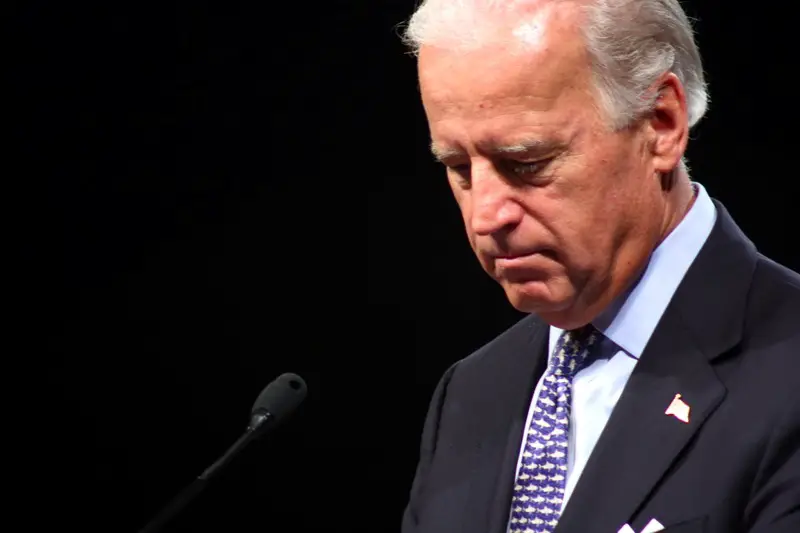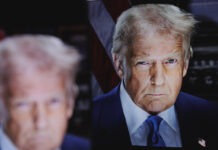In an unprecedented legal move, CNN filed a lawsuit against the Department of Justice (DOJ) to gain access to audio recordings of President Joe Biden’s interview with federal investigators. The interview, conducted by former Special Counsel Robert Hur, focused on Biden’s handling of classified documents following his tenure as vice president. The DOJ has released transcripts of the five-hour interview but withheld the audio recordings, igniting a debate on public transparency.
CNN’s legal action, filed in the DC District Court, argues that audio recordings provide a more complete and accurate representation of the interview than transcripts. CNN’s legal filing states, “Transcripts, however, are no substitute for recordings.” The lawsuit underscores a broader push for transparency, enabling the public and press to form their own conclusions about Hur’s investigation and Biden’s responses.
Hur’s investigation ultimately concluded without sufficient evidence to charge Biden with criminal mishandling of records. In a congressional hearing, Hur emphasized the importance of the audio recordings in shaping his decision. “The audio offers invaluable insights into Biden’s demeanor and thought processes,” Hur said, suggesting that these elements are not fully captured in transcripts.
The Biden administration has criticized Hur’s characterization of the president. In the transcripts, Biden showed confusion over dates and details, including the years of his vice presidency and the death of his son, Beau Biden. The White House disputes Hur’s portrayal of Biden as a “sympathetic, well-meaning, elderly man with a poor memory.”
CNN is not alone in its pursuit. Nearly a dozen other news outlets and organizations, including the conservative Heritage Foundation and Judicial Watch, have also sought access to the recordings. Their collective efforts highlight a growing demand for governmental transparency and accountability.
House Republicans have also intensified their demands for the audio recordings. The Chairmen of the House Judiciary Committee, Jim Jordan of Ohio, and the Oversight Committee, James Comer of Kentucky, sent a letter to Attorney General Merrick Garland on March 25. They warned of potential contempt proceedings against the DOJ if it fails to comply with their subpoena for materials from Hur’s investigation, including the audio recordings of Biden’s interview.
In their letter, the Chairmen set a new deadline of April 8, 2024, at noon for full compliance. They highlighted the subpoenas issued on February 27, which legally obligated the Attorney General to deliver the requested materials. Failure to meet the deadline, they cautioned, would lead to further measures, including contempt of Congress proceedings.
The White House has invoked executive privilege to block the release of the audio recordings, asserting that making them public could hinder future sensitive investigations. Garland has defended the DOJ’s stance, citing privacy concerns and the need to protect the department’s ability to conduct effective investigations. “The release of such audio recordings could dissuade cooperation from future witnesses in criminal investigations,” Garland testified before the House Judiciary Committee.
This legal battle has sparked outrage among House Republicans, who accuse Biden of using executive privilege to avoid scrutiny. They argue that the audio recordings would provide further evidence of Biden’s memory issues. The White House maintains that the transcripts suffice and that the recordings would be exploited for partisan purposes.
Democrats have defended Biden’s decision, pointing to the extensive documentation and witness testimonies already available to Republicans. They argue that the GOP’s demands are politically motivated, aimed at keeping the impeachment inquiry against Biden alive.
As CNN and other organizations press forward with their legal challenges, the case brings to the forefront issues of privacy, public interest, and the electorate’s right to be informed about their leaders. It highlights the unique nature of Biden’s interview, one of the few instances where a sitting president has engaged directly with a prosecutorial investigation into his conduct.
This contrasts sharply with former President Donald Trump, who faced multiple investigations but never participated in such an interview. The Biden interview and the ensuing legal battle underscore the complexities of balancing governmental transparency with the protection of sensitive information.
The outcome of this legal struggle will likely set a precedent for future cases involving the transparency of presidential investigations. As the courts weigh CNN’s lawsuit, the public and press await a decision that could shape the understanding of Biden’s handling of classified documents and the broader implications for governmental transparency.











